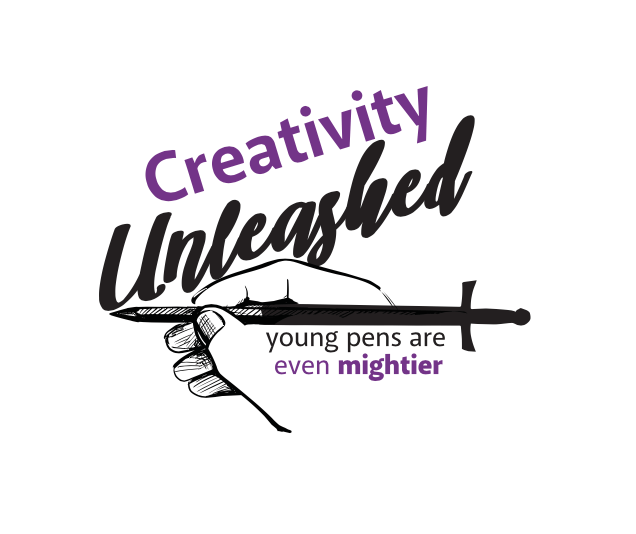Great-Grandfather’s Lesson in Chinese Calligraphy
Chinese calligraphy shaped my understanding of life. And it was my great-grandfather who taught it to me.
In his career, my great-grandfather had been a researcher to help the development of Chinese rural areas. He soon decided to spend his whole life in the countryside. When I entered his study, I noticed several antique bookshelves and a polished wooden desk in the middle of it. Even though the house was already 50 years old, the study room seemed spanking-new.
My first impression of him: he wore a pure white shirt and sat properly at his wooden desk. He had wrinkled hands but his writing still reflected that of an energetic man. The sunlight streamed through his faint yellow graph paper. He easily waved the brush and wrote a Chinese phrase that meant: “reflecting on oneself.”
When I was seven, I first began to learn this ancient art of Chinese calligraphy. I wasn't fully on board with the apprenticeship, I’ll admit. My great-grandfather held me on his leg, and he quickly wrote some phrases using his brush. He seemed to have magic hands so that every single stroke arrived neatly and beautifully into its right shape. He sometimes waved his arm like a dancer, while at other times he’d stare intensely at his paper for ages, plotting the path of his dynamic flows.
A normal piece of paper became an artwork under his brush, and the Chinese characters looked alive. I was so little that I couldn't tell what he was writing. When he gave the brush to me, I carefully held it, avoiding any ink that might stick to my hand. When I found it hard to control the weight of each Chinese character, I threw the brush deep into the well, making the ink splash over the paper. I worried immediately that I made my great-grandfather mad, but all he did was pick up the brush and calmly reminded me of the process.
He said, “That’s ok, just start over darling.”
Nothing else was revealed from his face.
“Why do I have to learn this while other kids are all having fun outside?” I asked in an impatient tone.
“Great-granddaughter, calligraphy is not just about writing. It is a heritage passed down by our ancestors. Young people have gradually forgotten this skill, to our disappointment. I want you to teach it to your younger siblings. Once you get used to practicing calligraphy, you will also learn self-discipline, because you have to focus on every single moment. I expect you to tell me the answer when you truly feel it.” His tone was benign, and it was clear from his facial expression just how much he meant it.
Soon, summer break was over, and I had to leave the countryside. When I did, my great-grandfather handed me a brush and a book about Chinese calligraphy.
“Darling this is a brush I used when I first learned calligraphy from my father. I hope you keep this and pass it on to more generations. This brush reminds us of the significance of Chinese calligraphy.”
As I look back on this now, I’m not sure that little me truly understood the depth of his connection to calligraphy, how much it meant to him or indeed, how much teaching it showed his love of me.
After that day, I followed my great-grandpa’s suggestion: to practice calligraphy every day.
Eventually, I found myself sitting in front of my desk, arranging all my material. I dipped into the ink and soon started to write my first word. Day after day, with self discipline, I learned how to persevere in calligraphy. My Chinese characters went from clumsy to vivid.
When I was ten, I finally comprehended my great-grandfather’s edification. In my understanding, he wanted me to continue this Chinese heritage, to join my own hand to the line of calligraphers of the past, and in result, to develop my own better concentration. I couldn’t wait to tell him. But when I begged my mother to drive me to his home, the conversation that followed would shift everything.
“I am sorry, my daughter. He is no longer there. He’s passed away, so you will see him only in your dreams.”
“What does that mean?” Ten year old me didn't really understand what “passed away” meant.
Mom crouched down and gave me a hug. It was a moment or two before she explained that cancer had arrived and slowly worked its way through my great-grandfather’s body. He was no longer suffering.
Today, I still regret the missed chance to show my calligraphy to the patriarch of our family, to show how his time and care to show a little immature girl the craft of calligraphy had indeed been worth it. At the age of 15, I feel a compulsion to tell him - somehow.
Dear Fengfeng,
I know you are safe and well somewhere in the universe. I’m sorry I did not express this before, but I hope somehow, somewhere, this humble letter might reach you.
Throughout these years, I practiced calligraphy every day, applying what you taught me. It is now a daily hobby for me. I receive many compliments demonstrating my calligraphy technique in class. I feel the pride of my Chinese heritage when I introduce more people to this writing. I think if you saw this you’d smile and be satisfied. I bet you’d even like my technique.
Calligraphy also serves to focus my thoughts during the chaos. As you mentioned, I have to concentrate on the brush, letting external stresses melt away. It is now a part of me that I treasure.
I’ve also shown my younger siblings the techniques you taught me. Your spirit is always with us. And just like you wanted, we all now share this heritage with the generations of tomorrow.
With love,
Your great-granddaughter

